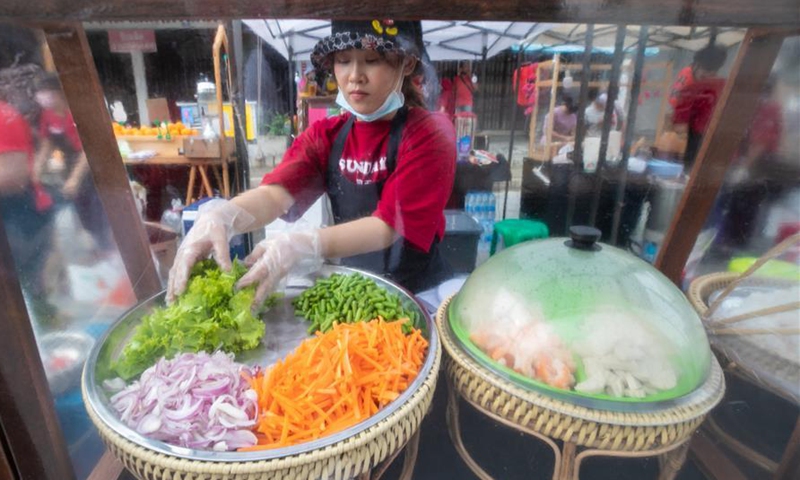SOURCE / INDUSTRIES
Business channel between China, Thailand shows recovery

A vendor prepares vegetable at a food festival in the old town of Phuket, Thailand, Sept. 13, 2020. The two-day festival was held to boost tourism and local economy. (Xinhua/Zhang Keren)
The business channel between China and Thailand has been slowly recovering as the coronavirus pandemic has been largely controlled in China, as a series of investment projects show.
The latest news is that the Chinese Athletic Association (CAA) and TCP Group, the inventor and owner of the global Red Bull brand and the "Red Bull" trademark, at the end of October announced that they had formed a new partnership with Red Bull becoming an official CAA cooperation partner.
TCP Group in May announced a series of investments totaling 1.06 billion yuan ($15.78 million) over the next three years in China. As part of the investment plan, TCP has carried out a series of studies aimed at exploring the possibility of opening new manufacturing centers in China, according to a release sent to the Global Times.
The third China International Import Expo (CIIE) also provides a broad platform for Thai companies to showcase high-quality products.
The platform will create opportunities for participating Thai small and medium-sized enterprises to explore the Chinese market and help Thailand's economic recovery, Somdet Susomboon, director-general of the Department of International Trade Promotion of the Thai Ministry of Commerce, said recently in an interview with the Xinhua News Agency.
The Global Times earlier reported that a second group of 147 Chinese tourists holding Special Tourist Visas arrived in Bangkok at the end of October, as Thailand takes small steps to revive its vital tourism industry after it closed its borders in March to contain the coronavirus.
In October, visiting Chinese State Councilor and Foreign Minister Wang Yi held talks with Thai Deputy Prime Minister and Foreign Minister Don Pramudwinai on enhancing bilateral ties and cooperation.
Wang said China supports the development of Thailand's Eastern Economic Corridor, and it is willing to promote its synergy with South China's Guangdong-Hong Kong-Macao Greater Bay Area, encourage Chinese enterprises to take part in related projects, and expand production capacity cooperation, setting a model for mutually beneficial cooperation with win-win results.
The Association of Southeast Asian Nations became China's No.1 trading partner in the first half of this year, accounting for 14.7 percent of the nation's total foreign trade, amid an upgraded free trade area protocol and supply chain cooperation.

